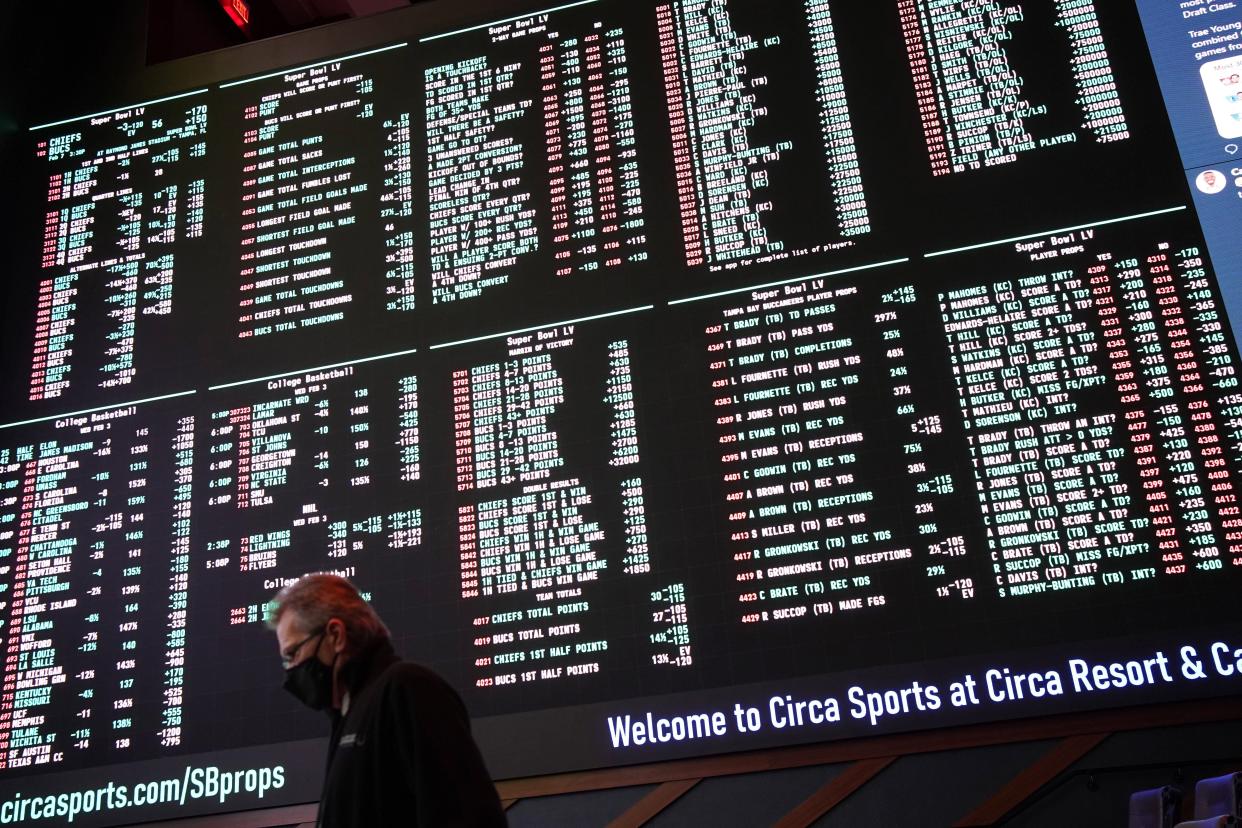Sports gambling: major league hypocrisy

- Oops!Something went wrong.Please try again later.
Years ago I was on a TV show that Howard Cosell hosted (ABC Sports Beat). The topic was: Does the media encourage the public to gamble?
Bobby Knight, Indiana basketball coach, said: "A newspaper that published point spreads should also publish names of services that render to prostitutes. They practically have the same legality in every one of our states and I can't see why one is any better than the other."
On the same show, former baseball Commissioner, Bowie Kuhn said: "Anything that encourages gambling on team sports bothers me. We all look hypocritical but then, why are we putting up the odds, unless we are tying to encourage it."
David Stern, NBA Commissioner said: "We don't want the weeks' grocery money to be bet on the outcome of a particular sporting event."
In May 1996, Horace Balmer, the NBA's Vice President for security, had two speakers flown into Norfolk, Va., whose messages explained the devastation of gambling on sports. Michael Franzese, a former mob boss who fixed professional and college games for organized crime and me, Arnie Wexler, who at that time was in recovery from gambling addiction 28 years.

Fast forward to our current expansion of gambling in this country. Major league sports are now partners with the gaming industry, as they have ads and promotions at sporting events, on TV and radio, including billboards in the stadiums, enticing gamblers of all ages. Some of these fans (even underage) have never gambled on a sporting event before.
Experts tell us the earlier a person starts to gamble, the greater the risk of them becoming a compulsive gambler. In a survey, 96% of adult male recovering gamblers stated that they started gambling before the age of 14.
Today it is easier to place a bet on a college campus than it is to buy a pack of cigarettes or a can of beer. If you read the Sports Illustrated story written by Tim Layden in April of 1995 about gambling on the college campuses, you know what every student knows: Gambling is running rampant on every college campus. Odds and point spreads today have become a normal topic of conversation among these students.
All professional sports have always had a no gambling policy for players and staff. Now that it is so open, how will they be able to maintain these policies or to stop players from betting on their own games, win or lose?
With more gambling available there will be more addicted gamblers. I wonder where we go from here?
Arnie Wexler and his wife Sheila have written a book "All Bets Are Off," which can be obtained at no cost by emailing aswexler@aol.com.
This article originally appeared on Palm Beach Post: Commentary: Increasing ease of sports gambling risks more addiction

